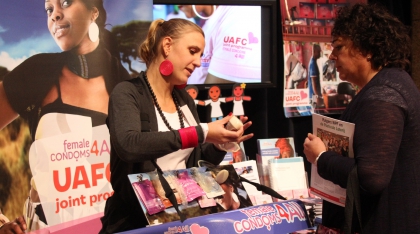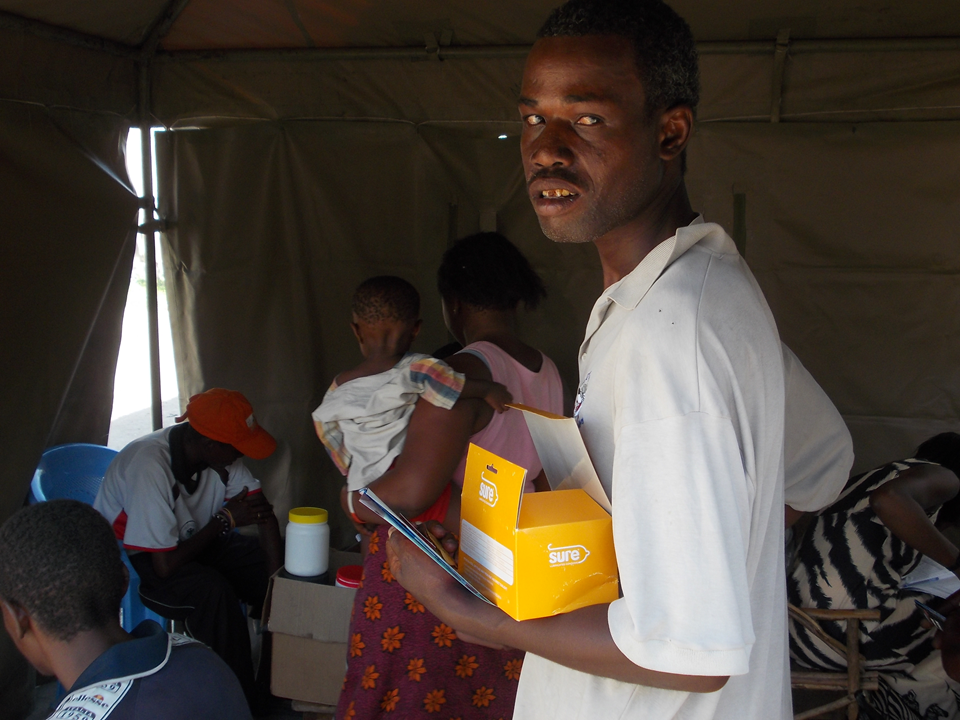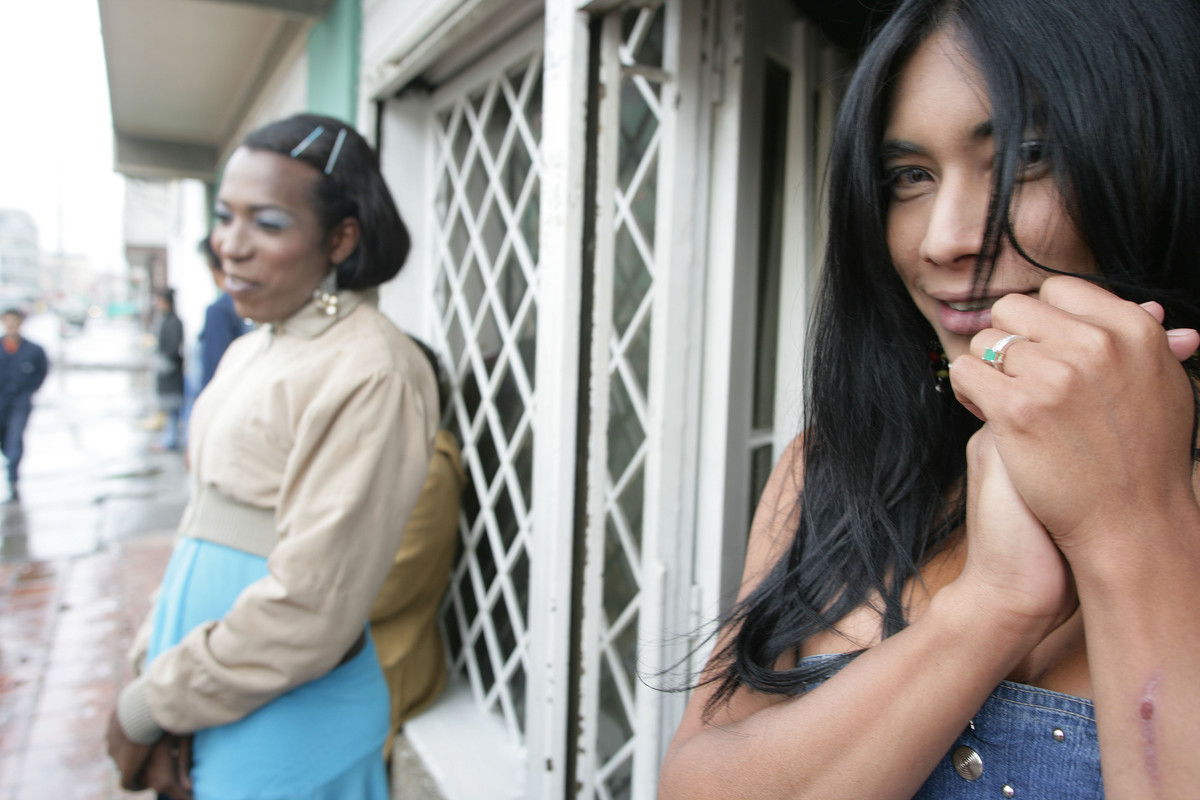
| 09 June 2016
Webinar: Comprehensive female condom programming
On 19 November 2015, IPPF is holding a webinar in collaboration with the Universal Access to Female Condom (UAFC) on comprehensive female condom programming. Time: 11:00 AM Central European Time (CET) / 10:00 AM London (GMT) Female condoms are the only women-initiated, dual protection method available. They have been on the market for 20 years and recently many new innovations have emerged. There are now various female condoms available, made of different materials, with a ring, sponge or in the form of a tampon to ease insertion. Variety is the spice of life! Are you interested in (working with) female condoms, or are you working with female condoms but would you like to strengthen your expertise and hear about the latest updates? Join the Universal Access to Female Condom (UAFC) webinar on 'Comprehensive female condom programming: from marketing to advocacy', tailor-made for IPPF regional offices and MA’s. During this 60-90 minute webinar, you will hear all about: Female condom product development: which types are available? This includes also an introduction to the Female Condom Market Intelligence Portal (FCMI); Programming and advocacy experiences from Cameroon and Nigeria; A summary of the Business Case for Female Condoms, which analyses the cost-effectiveness of investing in female condoms; An overview of upcoming female condom advocacy moments that you can link up with; A dialogue on future engagement, including collaboration and support for comprehensive female condom programming. If you wish to join, please send your confirmation to Rineke van Dam :[email protected]. The webinar will be hosted through GoToMeeting. Call-in options will be sent to you after application.

| 09 June 2016
Webinar: Addressing SRH and HIV needs among men who have sex with men
“Addressing sexual and reproductive health (SRH) and HIV needs among key populations: Men who have sex with men - the case of Cameroon” took place on Thursday, 15 October 2015. The German BACKUP Initiative in collaboration with IPPF funded a three-year project, “Shadows and Light”, which addresses the sexual and reproductive health (SRH) and HIV needs of key populations at higher risk of HIV within four IPPF Member Associations (MAs). This included a focus on transgender people in India; sex workers in Uganda; people who use drugs in Kenya; and men who have sex with men in Cameroon. This webinar series highlighted the importance of addressing SRH within HIV programmes for key populations, and how Global Fund to fight AIDS, TB and Malaria (Global Fund) is integral to their success and sustainability. Each webinar session focuses on one key population. Facilitated by IPPF and the German BACKUP Initiative, the webinars are held in cooperation with key population networks or organizations; the Global Fund; and IPPF MAs. The first webinar was held on 26 March: “Transgender People: The Case of India”; the second webinar was held on 18 June: “Sex Workers: The Case of Uganda”, and the third webinar focussed on "People who use drugs: The Case of Kenya" on 27 August. This fourth webinar focussed on "Men who have sex with men - the case of Cameroon". Besides highlighting the importance of SRH and HIV linkages including integrated service provision for people, the webinar aimed to: introduce the SRH components of the consolidated WHO guidelines on HIV prevention, diagnosis, treatment and care for key populations; discuss the main barriers and challenges people who use drugs face to access SRH and HIV services; understand how addressing SRH within HIV programmes and services funded by the Global Fund is possible; and learn from country-level experiences about successful interventions, challenges and recommendations. Speakers included Sonya Arreola from the Global Forum on MSM and HIV (MSMGF), Arouna Tena from the Cameroon National Association for Family Welfare (CAMNAFAW), and Ed Ngoksin from The Global Fund to Fight AIDS, Tuberculosis and Malaria. Background about Cameroon: In Cameroon, the SRH and HIV service needs of MSM are largely ignored. Owing to the political sensitivity of this issue, NGOs and leaders of national programmes do not often adapt their programmes and do not create an enabling environment for action. Discrimination from health service providers and a lack of sexual health information leave people of diverse sexual orientations and gender identities vulnerable to poor health. One of the consequences of this situation is a high HIV and STI prevalence among MSM. As a principal recipient under the Global Fund project, CAMNAFAW is contributing to the strategy to reduce the transmission of HIV among ‘most-at-risk populations’. CAMNAFAW in collaboration with other principal recipients are identifying the current gaps, with a focus on providing services to MSM and the wider LGBTI community in Yaoundé and Douala. The presentation slides are available to download.

| 09 June 2016
Webinar: Addressing SRH and HIV needs among people who use drugs
“Addressing sexual and reproductive health (SRH) and HIV needs among key populations: People who use drugs - the case of Kenya” took place on Thursday, 27 August 2015. The German BACKUP Initiative in collaboration with IPPF funded a three-year project, “Shadows and Light”, which addresses the sexual and reproductive health (SRH) and HIV needs of key populations at higher risk of HIV within four IPPF Member Associations (MAs). This included a focus on transgender people in India; sex workers in Uganda; people who use drugs in Kenya; and men who have sex with men in Cameroon. This webinar series is highlighting the importance of addressing SRH within HIV programmes for key populations, and how Global Fund to fight AIDS, TB and Malaria (Global Fund) is integral to their success and sustainability. Each webinar session focuses on one key population. Facilitated by IPPF and the German BACKUP Initiative, the webinars are held in cooperation with key population networks or organizations; the Global Fund; and IPPF MAs. The first webinar was held on 26 March: “Transgender People: The Case of India”; and the second webinar was held on 18 June: “Sex Workers: The Case of Uganda”. This third webinar focussed on "People who use drugs: The Case of Kenya". Besides highlighting the importance of SRH and HIV linkages including integrated service provision for people, the webinar aimed to: introduce the SRH components of the consolidated WHO guidelines on HIV prevention, diagnosis, treatment and care for key populations; discuss the main barriers and challenges people who use drugs face to access SRH and HIV services; understand how addressing SRH within HIV programmes and services funded by the Global Fund is possible; and learn from country-level experiences about successful interventions, challenges and recommendations. Speakers included Ruth Birgin from the International Network of People who use Drugs (INPUD), Lilian Kayaro from Family Health Option Kenya (FHOK), and Mauro Guarinieri from The Global Fund to Fight AIDS, Tuberculosis and Malaria. Background about Kenya: In Kenya the HIV epidemic has high prevalence among key populations including people who use drugs. There are clear indications of both rapid increases of drug use and HIV prevalence amongst this community, which was reported as 18% in 2011 (UNAIDS 2012). Government services are seeking to respond to this through the recent introduction of harm reduction interventions. These however face opposition from conservative and religious groups within Kenya, illustrating the stigma these populations face, and corresponding barriers to service access. Family Health Options Kenya (FHOK) have clinic sites in coastal areas of Kenya where this concentrated HIV epidemic is focussed, and so well placed to respond. In this first year implementing period, FHOK commenced the project with orientation meetings for the staff team both at Head Office and at the Coast Region Office and clinic. The project is building on a call for community partnership to increase access to harm reduction counselling and support for people who use drugs. The presentation slides are available to download.

| 09 June 2016
Webinar: Addressing SRH and HIV needs among sex workers
“Addressing sexual and reproductive health (SRH) and HIV needs among key populations: Sex workers - the case of Uganda” took place on Thursday, 18 June 2015. The German BACKUP Initiative in collaboration with IPPF funded a three-year project, “Shadows and Light”, which addresses the sexual and reproductive health (SRH) and HIV needs of key populations at higher risk of HIV within four IPPF Member Associations (MAs). This included a focus on transgender people in India; sex workers in Uganda; people who use drugs in Kenya; and men who have sex with men in Cameroon. This webinar series is highlighting the importance of addressing SRH within HIV programmes for key populations, and how Global Fund to fight AIDS, TB and Malaria (Global Fund) is integral to their success and sustainability. Each webinar session will focus on one key population. Facilitated by IPPF and the German BACKUP Initiative, the webinars will be held in cooperation with key population networks or organizations; the Global Fund; and IPPF MAs. The first webinar was held on 26 March: “Transgender People: The Case of India”. The second webinar focussed on “Sex Workers: The Case of Uganda”. Besides highlighting the importance of SRH and HIV linkages including integrated service provision for sex workers, the webinar aimed to: introduce the SRH components of the consolidated WHO guidelines on HIV prevention, diagnosis, treatment and care for key populations, and the Sex Worker Implementation Tool (SWIT); discuss the main barriers and challenges sex workers face to access SRH and HIV services; understand how addressing SRH within HIV programmes and services funded by the Global Fund is possible; and learn from country-level experiences about successful interventions, challenges and recommendations. Speakers included Anlina Sheng from the Global Network of Sex Work Projects (NSWP), Denis Bakomeza from Reproductive Health Uganda (RHU), and Ed Ngoksin from The Global Fund to Fight AIDS, Tuberculosis and Malaria. The presentation slides are available to download.

| 09 June 2016
Webinar: Addressing SRH and HIV needs among transgender people
“Addressing sexual and reproductive health (SRH) and HIV needs among key populations: Transgender people - The case of India” took place on Thursday, 26 March 2015. The German BACKUP Initiative in collaboration with IPPF funded a three-year project, “Shadows and Light”, which addresses the sexual and reproductive health (SRH) and HIV needs of key populations at higher risk of HIV within four IPPF Member Associations (MAs). This included a focus on transgender people in India; sex workers in Uganda; people who use drugs in Kenya; and men who have sex with men in Cameroon. This webinar is part of a series highlighting the importance of addressing SRH within HIV programmes for key populations, and how Global Fund to fight AIDS, TB and Malaria (Global Fund) is integral to their success and sustainability. Each webinar session will focus on one key population. Facilitated by IPPF and the German BACKUP Initiative, the webinars will be held in cooperation with key population networks or organizations; the Global Fund; and IPPF MAs. This first webinar focussed on “Transgender People: The Case of India”. Besides highlighting the importance of SRH and HIV linkages including integrated service provision for transgender people, the webinar aimed to: introduce the SRH components of the consolidated WHO guidelines on HIV prevention, diagnosis, treatment and care for key populations; discuss the main barriers and challenges transgender people face to access SRH and HIV services; understand how addressing SRH within HIV programmes and services funded by the Global Fund is possible; and learn from country-level experiences about successful interventions, challenges and recommendations. Speakers included JoAnne Keatly from the Center of Excellence for Transgender Health and Nisha Jagdish from the Family Planning Association of India. The presentation slides are available to download.







